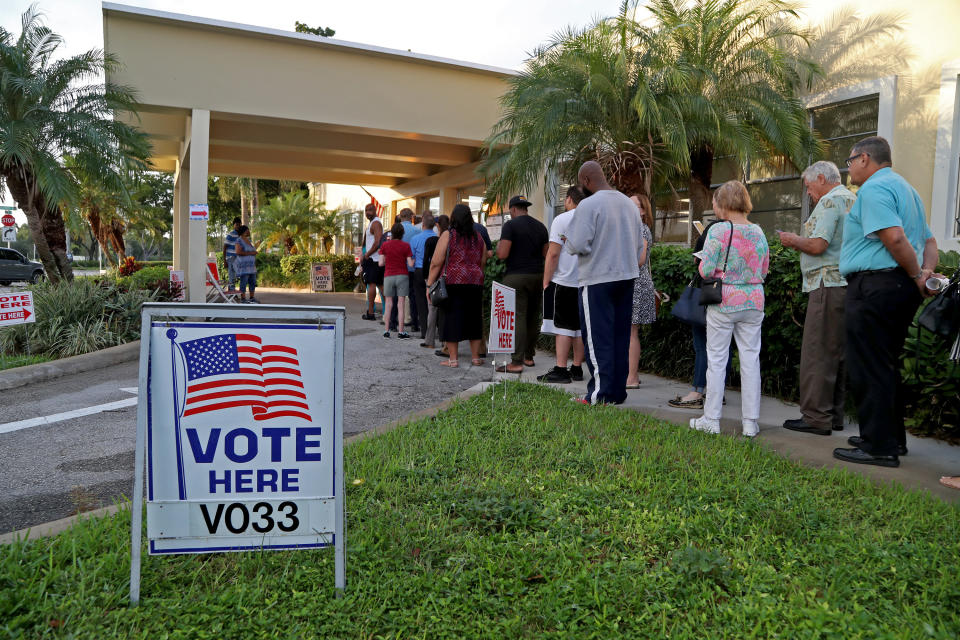Florida passes Amendment Four, restoring voting rights to convicted felons
Voters in Florida have passed Amendment Four, automatically restoring voting rights to convicted felons who have served out their prison term.
At least 60 percent of voters must approve an amendment to the state’s constitution for it to become law, and the Associated Press projected Amendment Four had cleared that threshold.
The passage of the amendment could have a profound impact on Florida’s political landscape, as felons make up nearly 10 percent of the adult population in the state. An estimated 1.5 million disenfranchised Floridians will now be eligible to vote in the next election.

The restriction that denied felons the right to vote originated in the state’s post-Civil War constitution as a way to prevent freed slaves from voting.
Former Gov. Charlie Crist changed the state’s rules in 2007, reinstating voting rights to thousands of felons. In 2011, Gov. Rick Scott imposed a five-year waiting period after a felon’s release from prison and required a formal hearing before their voting rights could be restored.
Supporters of Amendment Four gathered 800,000 signatures of registered voters in order to have it included on the midterm ballot. Scott and Republican gubernatorial candidate Ron DeSantis were opposed to the amendment, while Democratic Sen. Bill Nelson and Democratic gubernatorial candidate Andrew Gillum supported it.
_____
Read more Yahoo News midterms coverage:
In Texas Senate race, both parties are at the door — all 7.4 million of them
Battle for the soccer-mom vote plays out in suburban Detroit
Menendez race pits ethical concerns against party loyalty, and loyalty is winning
A House rematch sheds light on how landscape changed from 2016
Virginia Republican congressman tries to weather scandal and wave of spending



